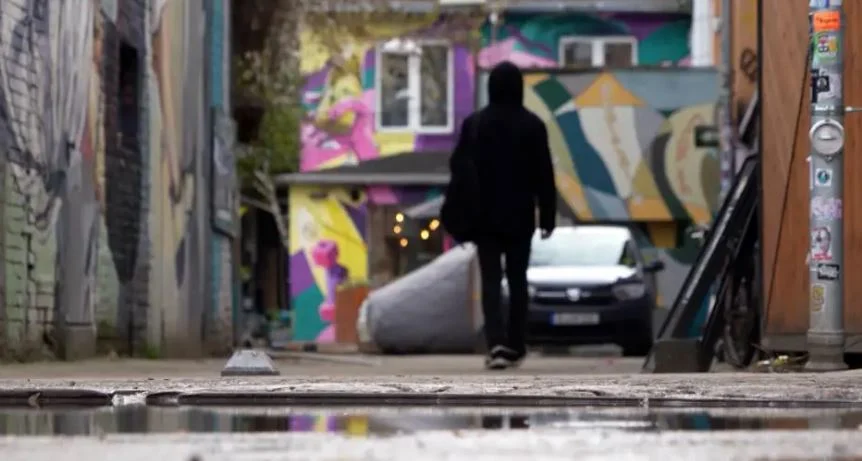
Fewer and fewer Russians who reject the war in Ukraine are receiving asylum in Germany. According to the German authorities, they are not at risk, but those affected think differently and are afraid of returning to Russia.
At the end of February, Oleg Ponomarjov received a negative response to his asylum request from the Federal Office for Migration and Refugees, BAMf in Germany. According to the authorities, he is not threatened by any danger in Russia and must leave Germany within 30 days, otherwise he must face deportation. Ponomaryev is desperate.
He is afraid that upon entering Russia he will be arrested and sent to fight in Ukraine.
“The situation in Russia is getting worse, general mobilization is imminent, and my skill level and license would allow me to operate military vehicles,” says the young Russian. Oleg Ponomaryev came in September 2022 to Germany, after partial mobilization in Russia. Then the German chancellor, Olaf Scholz, said that Russian citizens who do not want to fight in the war that Russia has started in violation of international law can seek protection in Germany.
For this reason, Ponomarjov sought asylum in Germany. While waiting for the answer to his asylum request, he learned German and volunteered at an integration center for Russian speakers. Then came the woman who also asked for asylum. Ponomarjov thinks that this answer is not right. “We are expected to express ourselves and be active, and then we are denied asylum. Just because we participated in the protests here, we can go to jail in Russia under some articles of the law there.” Ponomarjov has been part of several anti-war protests in front of the Russian embassy in Berlin. He is afraid that he may be accused of “discrediting the Russian army”.
Another young man, Dmitrij (name changed), immediately escaped after visiting the Russian military service center. He was given a few hours to pack his suitcase, but Dmitrij went into hiding and then left the country. In Russia, he was engaged against the war by writing graffiti against the war in Murde, he prepared posters, but I can’t say more, he emphasizes. But for the German authorities, this is not enough proof that he is in danger in his homeland. “I think I’m safe in Russia,” he says sarcastically. “Themselves are afraid to fight against the Putin regime, but they call on the Russians to stand up against it.”
Little chance of recruitment?
Human rights activist Rudi Friedrich from the German association Connenction e.V. which is committed to the rights of those who refuse the war and deserters from Russia has seen several similar letters from the German authorities, where more or less the same argumentation is used, with which Russians are denied asylum in Germany. According to the courts or the Federal Office for Migration and Refugees there must be a “high probability” of persecution, Friedrich says.
“Regarding the obligation for Russian military service, it is often thought that there is no such probability, even when the person presents the document with the request for recruitment.” According to Friedrich, in these cases it is said that the probability is low, that the person is old, or it is said that “there are about 25 million reservists who can be called to war. Why exactly you?”
This argument may be in accordance with the legal side, but it is interpreted against the asylum seeker. “As a consequence they are really threatened in the end by the call to war”, stresses Friedrich. At the same time, he emphasizes that Russian deserters who fled the fighting and came to Germany are granted asylum.
Decrease in the number of asylum recognitions
According to BAMF data, since the beginning of the war in Ukraine, 4,431 men from Russia have sought asylum in Germany. In many cases, asylum seekers are sent to the countries from which they originally came and which are responsible for granting asylum. In cases where Germany has accepted the asylum procedure, 159 persons have been granted asylum. The number of positive responses to the asylum request is decreasing. The ratio between the refusal of asylum and its recognition in 2022 was six to four, while today it is one to nine. The data was provided to the German Left Member of Parliament, Clara Bünger. On the basis of these data, it asks the German government to instruct the BAMF to provide extended assistance to the Russians who refuse the war, just as it was told. “This would be a strong political signal for peace.”
Oleg Ponomaryev and Dmitrij do not want to return to Russia. They say that “torture, prison, war and death” awaits them in Russia. Ponomarjov says that he is afraid, “that one day, when he wakes up, the police will knock on the door and say, ready for Russia”. Although deportations directly to Russia are not possible because there are no direct flight connections to Russia, deportations have been carried out through third countries. For example, with Serbia for Russians who have committed criminal acts. Both Russian pacifists have meanwhile appealed the decision of the Federal Office of Migration and Refugees. The process can take years. At this time they can stay in Germany, but with this kind of status it is difficult for them to find work, study or rent an apartment.

















